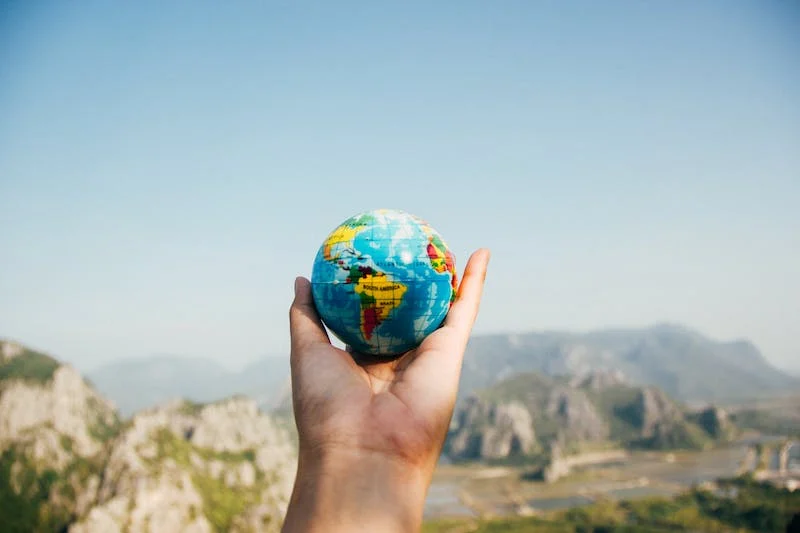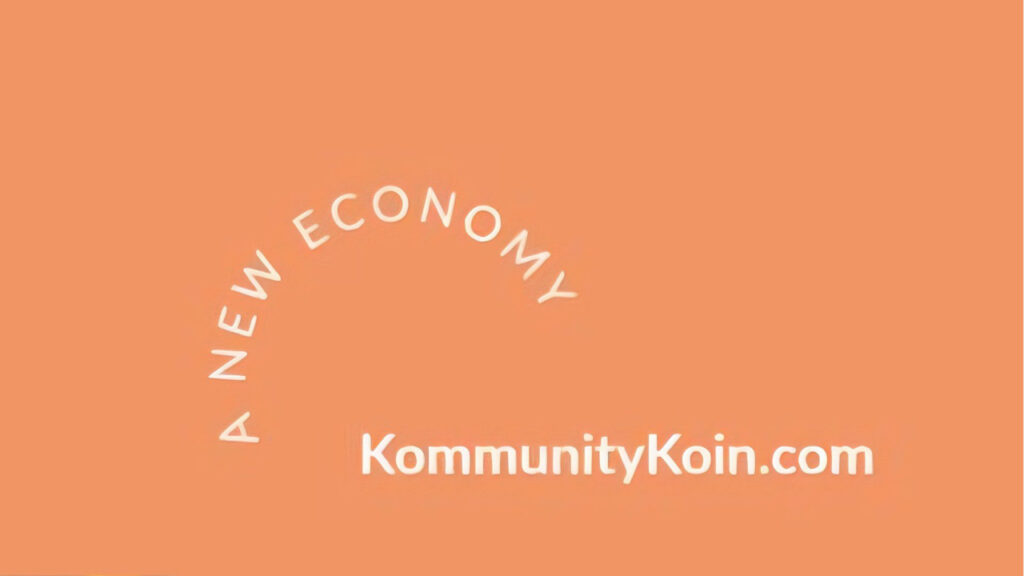
Globalization, once deemed the desirable endgame of human economic progress, now seems to be on life support. The concept, which promises a global village where goods, services, and ideas freely intermingle, is facing strong headwinds.
This blog post will look at the factors leading to the death of globalization and speculate on what may emerge from its ashes.
Understanding the Fall of Globalization
The unraveling of globalization is a complex, multi-layered story that can’t be tied to a single cause. We need to look below the surface where a brew of global tensions has been simmering, now boiling over into the open.
This escalating unease is feeding a wave of protectionism, drawing eerie parallels to a fresh Cold War scenario and looming fears of detaching the world’s two economic giants.
But that’s not all. The unprecedented pandemic, COVID-19, has revealed our vulnerabilities – an intricately woven global supply chain, fragile geopolitical situations, growing protectionism and the realization by the East that the West is no longer a completely necessary partner. All of this is compelling nations to question their heavy dependencies on one another.
Adding fuel to the fire, the global debt situation is becoming dire, as it shatters all previous records. It’s starting to become evident that countries reliant on debt for expansion could face rough seas in a post-globalized era. This precarious financial scenario will lead to a cyclical pattern of instability, stunted growth, and heightened global tensions in the months and years to come.
Making the situation worse, we’re also witnessing a significant shift in power – West to East and governmental to corporate. The reigns are gradually transitioning from governments to corporations, amassing clout that rivals or even eclipses some nations. This seismic shift is causing countries to turn their attention inward, emphasizing national corporate interests and creating a fractured global community. This surge in corporate protectionism is leading to decisions that starkly contrast with globalization’s underlying principles.
Moreover, our planet’s rapidly dwindling natural resources are a ticking time bomb. The relentless pursuit of growth that globalization encourages is placing unsustainable pressure on these finite resources. Consequently, countries are driven to adopt a more protectionist approach, hoarding resources, and further eroding the principles of a globally unified world.
The collapse of globalization is not just a possibility—it’s a reality we need to prepare for. So, let’s ask ourselves: what’s next?
The Root Cause: Rising Global Tensions and Debt
The intricate dance of the world economy is being tested like never before, and the rhythm seems to be faltering. Central to this perturbation are the escalating global tensions and mounting national debt. The stage is set with the world’s superpowers locked in an increasingly hostile face-off. Protectionist policies are no longer lurking in the wings but taking center stage, carving deep fissures in the once unified global economy.
Meanwhile, lurking in the backdrop is the specter of all-time high global debt. It’s a heavyweight that countries, relying heavily on borrowing for their growth, may find hard to bear in a world stripped of its globalization mantle. These economic uncertainties spawn a vicious cycle that feeds off itself, sowing seeds of financial instability, hindering growth, and sparking even higher global tensions.
As the harmonious symphony of globalization falls into discord, nations scramble to rewrite their own scores. It’s a time of global reflection and redirection, where the old rules no longer apply and the new ones are yet to be written.
The Role of Privatization of Power and Control

The creeping encroachment of privatization has shaped a new dynamic in the sphere of power and control. No longer do governments hold the monopoly on authority; corporations have stepped onto the stage and are now sharing the limelight.
As these private entities grow in power, they amass clout that parallels, and occasionally overshadows, that of nations. This subtle shift triggers a pivot in the global system. A heightened emphasis on national priorities gradually pushes out the concept of global unity, effectively chipping away at the pillars of globalization.
With their deep pockets and expansive reach, corporations have the leverage to influence policies that align with their interests. This corporate-centric focus, at times, may sideline broader global concerns. The result is an emergence of policies rooted in corporate sponsored nationalism and self-interest, effectively going against the grain of globalization agendas.
This evolving landscape of power and control is akin to playing chess. As corporations become key players, their moves often dictate the direction of national policies and international relations. The global interconnectedness that was once the linchpin of globalization begins to fray, paving the way for a more decentralized and fragmented global community.
In essence, the rising tide of privatization doesn’t just redefine power structures, it sets off ripples that ultimately disturb the smooth sailing ship of globalization, leading us to rethink and reconsider the world order. As we navigate through this uncharted territory, it’s crucial to acknowledge this evolving dynamic and understand its profound implications.
Natural Resources Depletion – A Time Bomb
Earth’s bounty is under siege. As the thirst for globalization, based on consumerism, fuels an insatiable demand for growth, our finite natural resources are being consumed at a breakneck pace. This hunger for resources, viewed through the lens of globalization, pushes us to exploit every nook and cranny of our planet, leading to a perilous tipping point.
This exploitation, however, has never been evenly distributed. Some regions shoulder the burden, their resources plundered, their ecosystems disrupted.
Elsewhere, countries indulge in the spoils, reaping the benefits while contributing to the strain on global resources. This unbalanced equation is a point of leverage – giving producer nations in the East a measure of control over the consumer nations in the West.
In the past, the consumer nations wanted to spare their own environments from the devastation of production and outsource that ecological disaster to poorer nation who were willing, for a while, to absorb the environmental damage in order to reap the financial benefits.
However, as resources become scarcer, the instinct to secure and hoard kicks in. This protectionist approach stands at odds with the ideals of a globalized world that promotes shared access and benefits. Instead of open markets and free trade, nations are increasingly turning inwards, safeguarding their own resources, and thus further cracking the unity of a globalized world.
Water shortages, food scarcity, and mineral and energy resources are potential flashpoints that could ignite conflicts, disrupting global harmony. This shift could give rise to a new kind of resource nationalism, where countries scramble not just for economic dominance but for survival itself.
What’s more, Western nations are now being faced with the stark reality that the Eastern nations have more financial leverage than their consuming Western counterparts, giving them, what is starting to look like, a winning hand. The former producing Eastern nations are now seeing that they no longer need to be the indentured servants of the West and are standing up and pushing back.
This upsetting of the delicate balance is destabilizing our shared planet and accelerating the end of globalization, not to mention placing dangerous tension on the geopolitical ecosystem.
The West has cornered itself into a desperate position where it needs to find a new way to continue being relevant in the modern world. This has led to military brinksmanship through proxy conflicts all around the globe. And, as the West becomes more and more desperate, the conflicts will inevitably grow until they cross over into territory that will ultimately lead to a check-mate situation for the former Western leaders of globalization.
In this unfolding scenario, the reality is harsh and the stakes are high. The pressure on natural resources is no longer just an environmental issue; it’s a threat to the very fabric of global stability. It’s a wakeup call that echoes loud and clear: we must shift gears, rethink our approach, and seek sustainable alternatives if we are to prevent this time bomb from detonating.
Envisioning What Comes Next
As we stand on the precipice of globalization’s demise, it’s time to take a hard look at the world that may emerge in its wake. We could see a pivot away from the relentless drive towards consumption based hyper-globalization, and instead, a turn towards more resilient, localized economies.

The nations of the world may reconfigure their policies with an increased emphasis on their own citizens’ needs – or, more truthfully, their or corporation’s needs, rather than catering to the interests of multinational relationships. But this is not to say that we will return to a world of isolated nations; far from it.
Despite the shift towards localized economies, the essence of collaboration will remain crucial. The most pressing issues of our time, such as climate change, pandemics, and global security, continue to demand a united global front. It’s a nuanced balance that calls for greater self-reliance, coupled with sustained international cooperation.
The thing that will likely change the most is; the matter of who is pulling the strings. It is clear that the East is likely to emerge as the victor in this death match, leading to a role reversal where the West becomes the servicer of the needs of the East.
It is going to be a painful transition of power from West to East and the citizens of the Western nations will suffer unimaginably in this process. We may be saying goodbye to globalization as we know it, but we are also saying hello to a whole new world of possibilities for those who have the foresight to position themselves to capitalize on the new world system. So, learn, keep your eyes open and try to figure out how to come out on top in this inevitable scenario of role reversals.
The Rise of a New Socioeconomic Landscape
As we venture into the twilight of globalization, a new dawn breaks on the horizon – the advent of a fresh socioeconomic order. This new world won’t merely be a flipside of the globalization coin but a complete remolding of our existing norms.
It will be a world that reimagines growth, not as a mad dash for economic supremacy, but as a more managed, corporatized system. We will likely find ourselves in a new world where politico-corporate leaders manage global resources, including people, in a way that is more sustainable for their “corporations” rather than in a way that simply rapes and pillages in the name of making money.
Our new politico-corporate “leaders” will take a more balanced approach to managing their new found resources – unfortunately, at the expense of the citizenship and freedom of the people’s of the world, and especially the peoples of the Western world.
But, is there a way to position ourselves to come out of this smelling like a rose? I say there is. I say that this can be an opportunity to rethink the way that we do business, an opportunity to shift from market economy thinking to core economy thinking – from a model of competition to a model of cooperation, an opportunity to find the value in ourselves that had been forgotten while we were lost in the consumerism of globalization. It’s time to repaint this picture.
On this new canvas, the contours of local economies can take a distinct shape. Communities can surge to the forefront, driving economic activity, cultivating innovation, and nurturing local enterprises. The essence of self-reliance can merge with the pulse of the community, reshaping our economic blueprint.
As we close this chapter on globalization, we embark on a journey towards a reimagined world, a landscape where the local replaces the global, the individual and the collective become the new economic model. Let’s turn the page and step into this brave new world together as a new kind of community – a Kommunity.